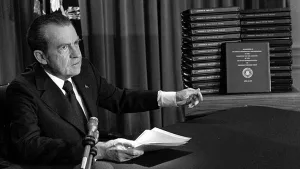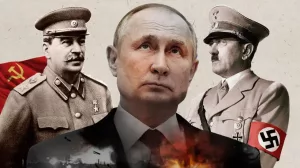OPEC+’s decision to reduce daily oil production by more than one million barrels poses new risks on the price front and represents an attempt to finance the transition of producing countries towards an economy untied from crude oil.
In recent weeks the refrain that resonated in commenting on the falling inflation data in the main world economies was more or less the same: a sharp drop in energy prices. The price of Brent, for example, had gone from the peak of 122 dollars a barrel in June 2022 to 72 dollars on March 21st. Such a cooling of the inflationary pressure made even the central banks breathe a little more calmly. However, the decision announced by OPEC+ recently surprised everyone and could mess things up again.
Let’s start chronologically. On the evening of April 2nd, the organisation of the oil-producing countries announced its intention to reduce the daily production of crude oil, effectively renouncing a no-action stance advocated by some of its representatives until March 31st. The numbers are significant: the reduction will be 1.2 million barrels of crude oil per day, half a million only those produced by Saudi Arabia. As a percentage, this is a reduction of approximately 2% of total production; numbers that could be strengthened if Russia follows up on its desire to produce 300,000 barrels of oil less per day until the end of the year.
The markets reacted as expected. The price of WTI oil jumped 8% on April 3rd, with those of gasoline up nearly 5 percentage points. The OPEC + decision seems destined to create more than a few headaches, especially in Asia. On the reference market for the area (that of Dubai) the backwardation spread (the positive difference between the spot price and the future price, an indicator of problems on the supply side) rose much more markedly than recorded for WTI and Brent. After all, it is enough to remember that Aramco (Saudi Arabia, OPEC+’s largest oil producer) sells 60% of its crude to Asian countries, with China, Japan, and South Korea in the lead. In the West, on the other hand, analysts seem convinced that shale oil producers will be able to increase production in a short time, halting the upward race in prices. Meanwhile, however, oil reserves in the US contracted by 3.7 million barrels last week alone, a further sign of supply-side problems in the coming months.
OPEC+’s decision, which has also been blamed in no uncertain terms by the White House, certainly represents a new risk for global inflation but perhaps, and above all, it is the indicator of a strategy we will have to deal with in the coming years.
On the inflation front, the effects could only be temporary. If it is true that some analysts hypothesise a return of the price of the barrel above 100 dollars and that according to others the market risks seeing a supply deficit in the short term, on the other hand, it is also true that the international economic situation is certainly not ultra expansionary, with demand weakened by inflation and interest rates. If we wanted to bother with the intermarket analysis, we could also recall how generally a surge in oil prices is the prelude to a slowdown in the economic cycle. Ultimately, OPEC+’s move does not seem motivated by the desire to exploit sustained demand but rather by that of anticipating its decline, bringing home as much profits as possible.
Here probably lies the deeper issue, the one we will have to deal with in the coming years. Bhushan Bahree of IHS Markit, interviewed by the Economist, summed it up perfectly. Referring to Saudi Arabia, Bahree recalled the government’s plans to modernise the economy. Trillions of dollars of investments with which to transform the country into an economic and tourist hub, and where to get this money if not from good old oil? In other words, Saudi Arabia seeks to exploit oil to become a country less dependent on oil itself. And the problem of reinventing a future without the “fossil ATM” naturally also concerns the other producers, both in and outside the area. The conclusion, warns Helima Croft of RBC Capital Markets LLC – interviewed by the Financial Times – is that the decisions of countries such as Saudi Arabia are less linked to the international and market situation and always more a direct consequence of internal interests and village projects.
Ultimately, OPEC is firing its last bullets before oil takes its downward spiral. Yet, they will be expensive bullets and not without consequences.
Featured image: Reuters.







